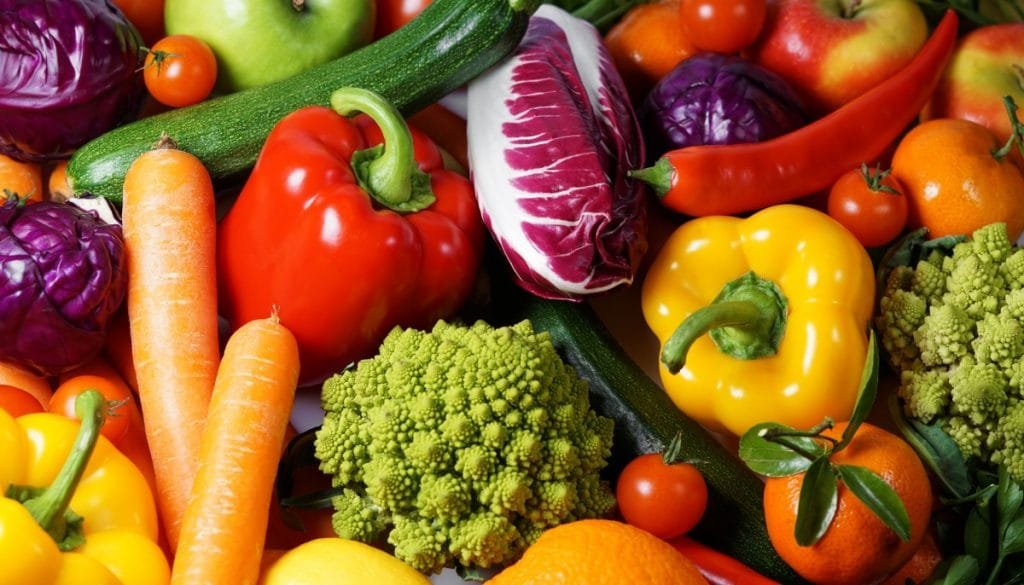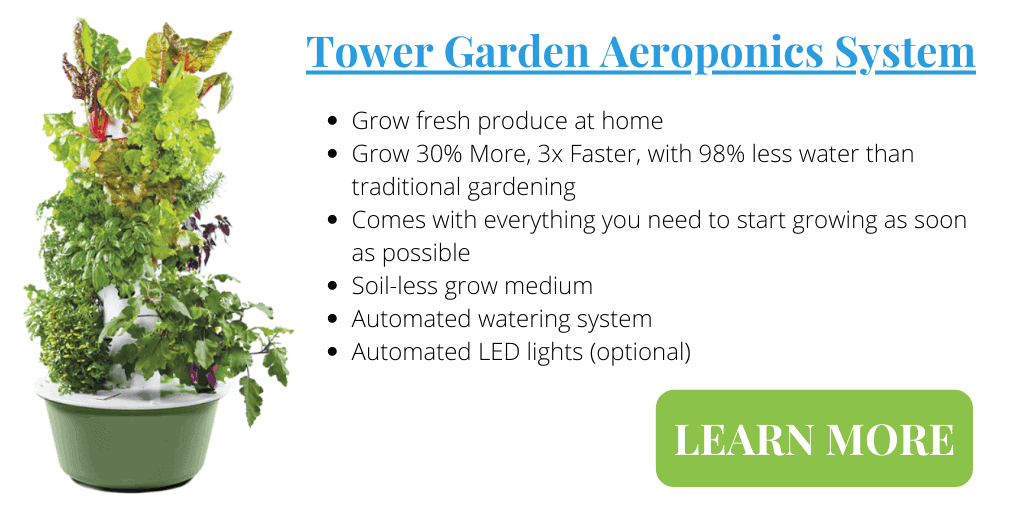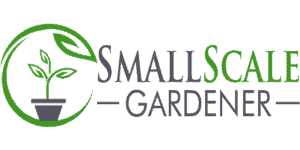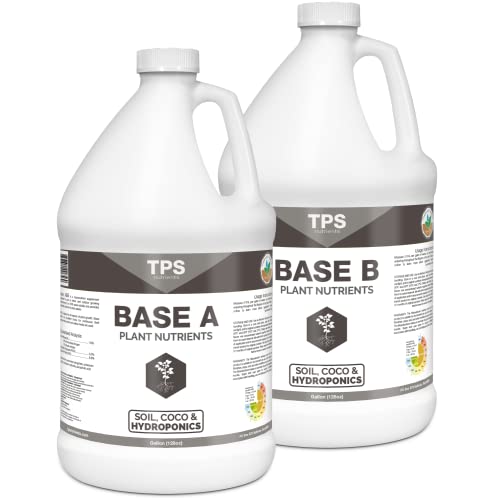Hydroponically grown vegetables can be a healthier option for you and your family. Fresh vegetables are very healthy. However, commercially grown vegetables could contain toxic chemicals due to the insecticides, pesticides, and fertilizers applied to the soils and the vegetables during the growing process.
Vegetables grown hydroponically are incredibly healthy! Studies have shown the nutrient profiles of fruit and vegetables grown in nutrient-rich water solutions to be similar or better than soil grown foods. Hydroponic systems are generally not treated with harmful pesticides and chemicals. to treat disease, often used when growing vegetables traditionally in the soil.
The best way to ensure healthy, organic, toxin-free vegetables is to grow them yourself. While there are many different methods to grow your own produce, your available space, time, and budget determine how and what you grow. Growing vegetables the hydroponics way meets all these criteria as you can install a hydroponics system of any size in almost any available space!

Why Are Hydroponic Vegetables Healthy?
Hydroponically grown vegetables are grown in a completely different manner to most commercially grown vegetables. Big commercial growers and most backyard and homestead growers plant and grow their produce the traditional way – in the ground!
Whether they plant their produce directly into the ground, raised beds, or even in pots and containers, growing in soil is the most common and often used method to grow vegetables.
The difference with hydroponics farming is that the plants and vegetables are grown in a nutrient-enriched water solution, not soil! Most hydroponically grown vegetables are grown organically, but this is not always the case. If certified organic nutrients are used in the growing process, the grower will indicate this on the packaging.
Harmful chemicals are not sprayed over the vegetables or added to the water they grow in. In fact, because the vegetables are grown in a controlled environment, they are generally free from the most common diseases that attack vegetables grown in the ground.
Because of the controlled environment, it is easier to use manual means to protect the plants from pesky bugs. The troublesome bugs can either be removed by hand or the plants protected from attack by coverings. All these factors work closely together to ensure that hydroponically grown vegetables are incredibly healthy and free from toxins!
Plants grow faster, stronger and healthier in hydroponic systems. This makes them less vulnerable to attacks from pests and disease, which is another reason that harmful chemicals are generally not necessary when growing plants hydroponically.
Fast and Easy Hydroponic Growing
The best way to start growing fresh and healthy vegetables at home is by using the Tower Garden vertical growing system. Each ready-to-grow tower provides 20+ planting locations I use to grow tomatoes, cucumbers, strawberries, greens, herbs and peppers in the corner of my home office.
The automated timer and water pump allow the system to operate with very little effort, and because of its vertical tower design there is no bending or weeding required. I spend a few minutes per day picking fresh food and pruning the plants for more efficient growth. For more information check out our What is a Tower Garden article.

Benefits Of Hydroponically Grown Vegetables
Hydroponic gardens are generally contained within a structure, protecting them from the elements. These systems create micro-climates that safeguard the plants from many of the everyday problems traditional growers face.
Hydroponically grown plants grow in temperature-controlled environments, and sometimes, artificial grow lights are introduced to mimic sunlight!
This means that the vegetable is growing in a better, safer, more controlled, and ideal growing environment, which protects them from the stresses of the elements and allows them to grow to their full, healthy, fresh potential.
The old statement “you are what you eat” has relevance when growing your own food. The nutrient level of the plants you eat will only be as good as the nutrients you are giving your plants as they grow. The higher quality food your plants get, the better nutrient value they will have for your body when you consume them.
Hydroponics gives you control over what you are feeding your plants, and ultimately, control over the quality of the fresh food you are eating.
The benefits of growing vegetables the hydroponic way are many and varied:
Controlled Nutrients
The amount of nutrients in the water is tested regularly, at least every four to five days. When the nutrient levels drop, they are topped up with a carefully measured amount to ensure that the vegetables receive what they need to grow strong and healthy.
Premixed nutrients are often used as they are a balanced solution, but more skilled growers can and do use individual nutrients.
Oxygen and nutrients are delivered directly to the roots of each plant, causing them to grow up instead of out as they don’t need to search for nutrients. The plant is less stressed and concentrates on growing rather than fighting for what it needs to survive.
- COMPLETE PLANT GROWTH FERTILIZER: TPS Nutrients BASE AB SET contains everything necessary for a...
- SAFE ON ALL PLANTS: Should be used with every watering from cutting to harvest.
- COMPATIBLE WITH OTHER FERTILIZERS: TPS BASE AB is fully compatible in solution with other TPS...
Clean Water Supply
Hydroponic farming uses less water than traditional farming methods. Any water that the plants do not absorb is simply recycled throughout the system again and again. Freshwater is added every few days to the system to top up the levels.
As most hydroponics systems are enclosed, there is no exposure to any outdoor elements. No outside influences like dust or leaves can enter the water to contaminate it, so fewer treatments are needed to protect the plants against insects and pathogens.
The only time that anything is added to the water is when the nutrients levels are topped up. As the water is monitored, the growing vegetable is protected from any water-borne diseases, mold, and scum.
Non-GMO Or Pesticides
Interestingly, each year organizations like the Environmental Working Group release lists of commercially grown produce that have been found to contain pesticides. Know as the “Dirty Dozen” list, typical produce like spinach, tomatoes, peppers, and potatoes are found on the list!
Most of the listed items can quite easily be grown at home in controlled growing environments, free from pesticides and chemicals.
Most hydroponics systems are farmed organically, so any nutrients or pest control methods that are used have to comply with the required standards to be labeled as authentic organic produce.
If you are growing your own vegetables, you are in control of what goes into your vegetables, and more importantly, what you are putting into your body!
Seeds And Seedlings
Most hydroponic growers know the origin of their seeds and seedlings. Thorough research is conducted to source the seeds. Non-GMO and heirloom seeds are generally used to grow vegetables. They are more robust and healthier than most other seeds and are guaranteed not to be contaminated by chemicals, toxins, or genetic modification.
Some growers will only purchase their seeds from reputable sellers, and even then, only after others in the growing community have recommended the supplier.
Great care is taken with transporting and storing these seeds to ensure that their freshness is maintained and so that other varieties do not contaminate them.
Seedlings are sourced in the same manner and only from reputable sellers.
The reason for strict controls with seeds and seedling suppliers is to ensure that cross-contamination from other plants does not exist.
Chemical and toxin-free seeds and seedlings are healthier, and they produce healthier vegetable plants. If they are not exposed to any contaminants during the growing stages, then the vegetables you consume will not contain any toxins that are bad for your health.
Nutritional Value
Although hydroponically grown vegetables contain the same amount of nutritional value as conventionally grown crops, certain vegetables grown hydroponically, like sprouts, have been found to have 500% more vitamin content than soil-grown sprouts!
Vegetables produce their own vitamins, but Hydroponic farmers can control the levels and amounts of minerals in the water to maintain the minerals’ consistency within each plant. Some plants can become nutritionally superior to traditionally grown plants by adding magnesium, calcium, zinc, and iron to the solution.
In contrast, conventional traditional farmers with soil-grown vegetables need fertilizers and artificial chemicals to fortify the soil to produce healthy vegetables.
Controlling the nutrients in the water allows for juicy, crunchy, fresh raw vegetables, which contain minerals, vitamins, antioxidants, good carbs, and folic acid. By growing your own vegetables, you control your diet and the diversity of your food.
Benefits To Your Health
Eating a healthy balanced diet generally includes a diverse mix of fruit and vegetables daily. While hydroponically grown vegetables might not contain any more nutrients than vegetables grown in soil, they will most certainly contain fewer toxins and chemicals!
Growing your vegetables hydroponically ensures a good spread of healthy vegetables all year round. You are not limited to certain in-season vegetables, which can only be grown during certain seasons. Controlled vegetable growing means that you can grow what you like according to your needs, and you won’t have to wait for the correct season to eat what you enjoy.
Eating fresh vegetables can dramatically improve your health. Vegetables contain nutrients and minerals that could reduce the risk of stroke and help fight the effects of type 2 diabetes and cancer.
Fresh, healthy vegetables contain so much natural flavor that you won’t need additional salt for them to taste good. Drizzling healthy oils like Olive Oil over the vegetables before you eat them adds to the natural flavors and ensures that you get a good dose of healthy fats!
Not only will growing your own healthy vegetables add vitamins and minerals to your daily food intake but, studies have shown that there are fantastic health benefits to growing your produce!
Farming and gardening cultivate a healthy lifestyle by adding regular exercise, a healthy diet, and even a hobby to your daily life! An outdoor lifestyle and healthy food are conducive to a good long life!
Growing your own vegetables is not only beneficial to your health by getting you outdoors and into the garden but, you will know for sure how fresh your vegetables are and when they have been harvested.
Too often, our fresh, commercially grown vegetables are kept in warehouses for days or weeks before being transported to the grocery store. When the vegetables make it to the shelf, they have lost their nutritional value and are artificially doctored to look fresh.
Some commercially grown vegetables go through selective breeding processes to change or maintain a specific color or taste or even prolong their shelf life. They can be injected with chemicals to ripen prematurely to produce more than one crop each season.
If you do have the means to grow vegetables hydroponically, the advantages far outweigh the disadvantages. While there are many varied reasons not to buy commercially grown vegetables, there are as many reasons to grow your vegetables!

Pros Of Hydroponically Grown Vegetables
There are many benefits to growing fresh, healthy vegetables in the controlled hydroponics growing environment. Homegrown fresh produce has the best flavors and the brightest colors – all-natural without anything added to them to make them look healthier!
Hydroponics systems produce healthier plants much quicker than commercially grown plants, using 80% less water. Growing hydroponically means zero soil and zero weeds to infiltrate and compromise your plants!
Here are some more advantages to growing vegetables the hydroponic way:
- They taste better than commercially grown crops
- The natural texture and flavor of the vegetables are not compromised
- You know the source
- They can grow anywhere, in any space
- The vegetable roots don’t compete for nutrients, so many plants can grow closer together in a smaller space
- Incorrect transportation methods cannot destroy the vegetables
- The vegetables are not injected or treated with pesticides, chemicals, or toxins
- Home-grown is more cost-effective than store-bought due to the shelf-life of the produce
Why Do Some People Disagree That Hydroponics Vegetables Are Healthy?
Sometimes, vegetables grown in a hydroponic setting can be unsafe. Hydroponic greenhouses have a high humidity level, and some vegetables can be susceptible to salmonella contamination. If your vegetables are grown in this type of environment, wash the vegetables thoroughly before eating to remove any bacteria.
Cons Of Hydroponically Grown Vegetables
The costs of setting up a hydroponics system can be pretty high, especially if the design is customized. Most systems use power to keep the water pumps running, which adds to the cost. If the system is without power and water for a few days, the plants can die.
- Sometimes organic vegetables are commercially grown using hydroponics and are sprayed with pesticides
- The system requires regular monitoring and micro-managing to control the growing environment.
- Waterborne diseases and infections can quickly spread through the system and affect all the plants.
Conclusion
Hydroponics systems not only produce fresh, healthy vegetables year-round, they are also an eco-friendly, sustainable method of growing your own produce at home. If you are concerned about the possible environmental impact of chemicals and toxins, then this method of growing vegetables is the best and healthiest approach.
By growing your own vegetables, you know precisely what has been added to the soil or water supply to produce and encourage the growth of healthy plants.
Vegetables grown in the hydroponics way are as healthy as any plants grown in the soil, but most of them don’t contain any added chemicals that are dangerous to your health.

